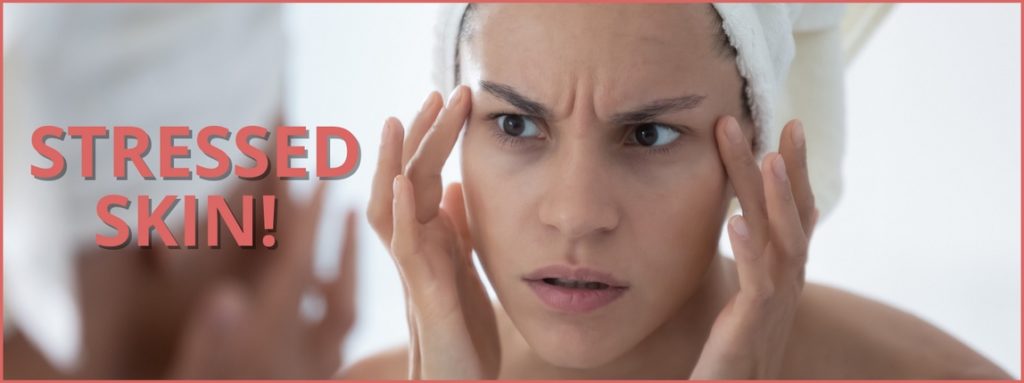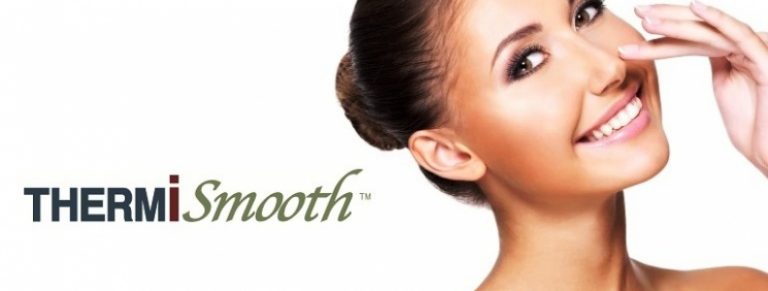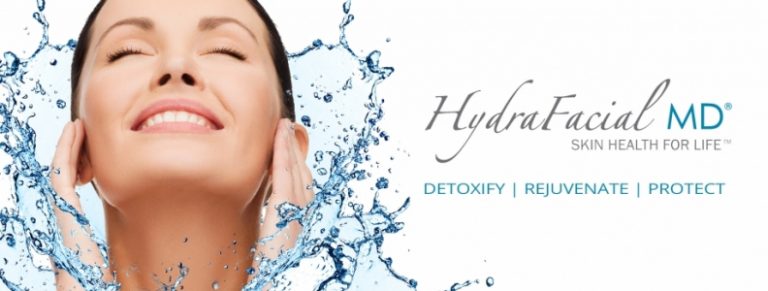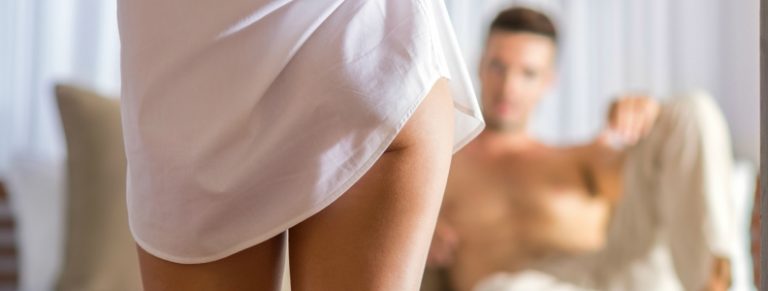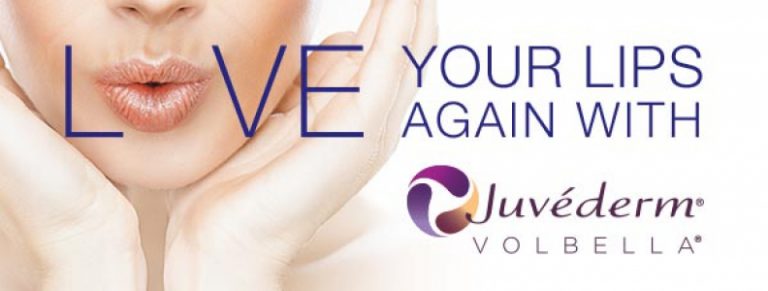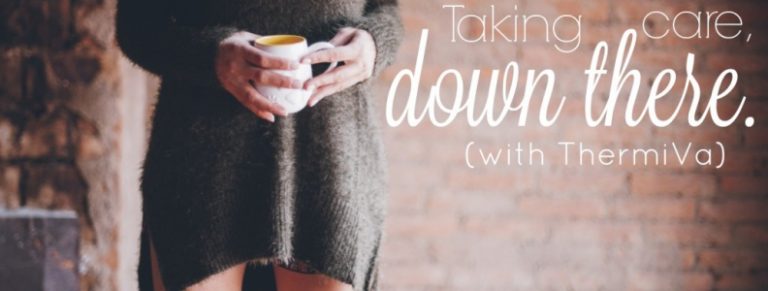How Stress and Anxiety Impacts Your Skin And What You Can Do About It
Stress affects all of us. While we may mange it differently, it’s a mostly unavoidable consequence of living in the world. But if you feel like your current level of stress exceeds the norm, you wouldn’t be alone. Recent research from the American Psychological Association* shows that compounding stressors in our lives—from war to inflation to the lingering toll of the COVID-19 pandemic—have elevated stress to a national health crisis.
We all have a sense of what stress means for our phycological wellbeing, but what about our skin? The relationship between stress and skin conditions has been documented since ancient times, but only in recent years have we learned more about the underlying mechanisms that connect psychological stress to our appearance and the condition of our skin**.
We know that multiple neuroinflammatory conditions can be triggered or aggravated by stress, such as psoriasis, atopic dermatitis, acne, contact dermatitis, alopecia areata, itch (or Pruritus), and erythema. Stress can slow down the skin barrier’s ability to heal itself, too. And it can directly impact our daily appearance.
Let’s take a closer look at what our faces can reveal about our anxiety—and what we can do about it.
WHAT HAPPENS TO SKIN WHEN IT’S STRESSED?
Stress can affect our outermost appearance. That’s because hormones like cortisol, which are released because of stress, affect every organ in the body—and our largest and most sensitive organ is our skin. The signs and symptoms of stressed skin may include one or more of the following:
Acne
The hormones our bodies release when we feel stress, specifically cortisol and adrenaline, can potentially cause increased oil production in your skin glands. Excessive oil production by these glands can clog your pores and lead to acne.
Bags Under the Eyes
We are all familiar with the dreaded swelling or puffiness beneath our lower eyelids. Unfortunately, stress affects our cortisol levels which, in turn, can increase the appearance and intensity of puffiness and bags under our eyes. If stress and anxiety are causing you to lose sleep, this won’t help matters, as sleep deprivation can further reduce the elasticity of your skin.
Fine Lines and Wrinkles
Wrinkles form when your skin’s connective tissues—namely collagen and elastin—break down. This is a natural part of aging. However, the stress hormone cortisol can also break down collagen and elastin and cause wrinkles, too. Stress may also lead to the repeated furrowing of your brow, which can also contribute to wrinkles.
Skin Discoloration
Anxiety can cause skin to appear redder or pinker in areas, especially around the face and head. This is caused by capillaries in the face dilating (allowing in more blood). Several skin disorders are also exacerbated by anxiety.
For example, if you suffer from rosacea, a common skin condition that causes blushing and visible blood vessels in your face, you are more likely to have an outbreak when you are under stress. Any disorder that causes skin discolorations can be triggered or worsened by stress.
Stress also has the potential to weaken your immune system, which can lead to an imbalance of bacteria in your gut and skin. This condition is known as dysbiosis. The symptoms of dysbiosis include skin redness or rash, among others.
Dry Skin
The outer-most layer of your skin is called the stratum corneum. It contains proteins and lipids that play a critical role in keeping your skin cells hydrated. A pair of studies** performed on mice found that stress impairs the barrier function of your stratum corneum and may negatively affect skin water retention. In other words, when your stratum corneum isn’t working as it should, your skin can become dry and itchy.
THE BEST WAYS TO TREAT STRESSED OUT SKIN
If you are concerned that stress is taking a toll on your appearance, here are a few safe and effective ways to achieve healthier and more radiant-looking skin. These treatments should only be performed by a licensed aesthetician.
Chemical Peels
Chemical peels offer many benefits to stressed skin, including improving skin texture, tone, clarity, and the look of fine lines and wrinkles. Chemical peels work by exfoliating the skin’s surface, loosening and removing dead skin cells in the uppermost layers of skin so healthy skin cells can then rise to the surface (a process known as cell turnover).
Chemical peels come in many different strengths and acidic formulations. Common acids in chemical peels include:
- Alpha hydroxy acids (AHAs), often used to treat signs of aging such as fine lines, wrinkles, dullness, and uneven texture
- Beta-hydroxy acids (BHAs), typically used to treat problematic skin concerns such as blemishes, large pores, and uneven texture.
- Trichloroacetic acid (TCA), which address more advanced visible signs of aging and discoloration caused by sun damage, acne, or hormones.
Hydrating Facials
Hydrating facial treatments like the HydraFacial are gentle alternatives to surgical procedures for women and men with a wide range of skin types and concerns. The HyrdaFacial’s patented technology combines deep cleansing and exfoliation with hydrating and moisturizing serums to treat fine lines, wrinkles, skin firmness and texture, brown spots, and pore congestion. The HydraFacial is quick (typically 30 minutes or less) and produces instant results with no downtime or irritation.
Laser Treatments
Lasers are fast becoming the treatment of choice for many of today’s cosmetic and clinical treatments. Laser treatments help reduce the effects of aging and damaged skin. At Dr. Rudderman’s Medical Spa, we are proud to offer elos™ & BBL laser technology, the first and only laser technology that combines light and radio frequency. The combination of these energies can restore a healthier, more youthful appearance to your skin gently, without pain, and without downtime.
Microneedling
Microneedling is a non-surgical system that stimulates your skin’s natural ability to produce collagen. It is a simple procedure lasting 10 to 30 minutes depending on the area to be treated. Microneedling uses miniature fine needles to create thousands of invisible, vertical perforations into the top layers of your skin. As a result, the skin naturally produces collagen and elastin to repair these perforations, minimizing wrinkles, reducing pore size, and improving skin texture.
Women and men love microneedling for its minimal downtime and quick results. It is a versatile treatment that can be performed on the face, neck, hands, or chest and can result in tighter skin, regained skin elasticity, minimized pores, smoothed fine lines and wrinkles, improved acne scarring, and reduced hyperpigmentation (skin discoloration).
Topical Skin Treatments
There are many topical treatment options that can help give your face a boost, including products containing hyaluronic acid and retinol.
- Hyaluronic acid helps skin stretch and flex and reduces skin wrinkles and lines. It is also proven to help wounds heal faster and can reduce scarring.
- Retinol, an over-the-counter version of retinoids, is made from vitamin A and is primarily used to treat mature skin concerns as well as acne. It helps cells to produce collagen and elastin and can also improve skin’s tone, texture, and brightness.
CONCERNED ABOUT YOUR SKIN?
Stress is an unavoidable part of life. However, prolonged periods of stress can leave a lasting impression on your face. Minimizing avoidable causes of stress in your life, learning techniques to manage stress, getting proper sleep and hydration, and taking care of your skin can help you fight against these signs of premature aging.
If you are concerned about the health and appearance of your skin, speak with a licensed aesthetician to discuss your treatment options.
SCHEDULE AN APPOINTMENT
You can make an appointment to see a licensed medical aesthetician at our Medical Spas, located in Midtown Atlanta and Alpharetta. We provide concierge-style services in beautifully appointed spa rooms and our results will speak for themselves. Our medical aestheticians will help you find the right products for your skin type.
References:

